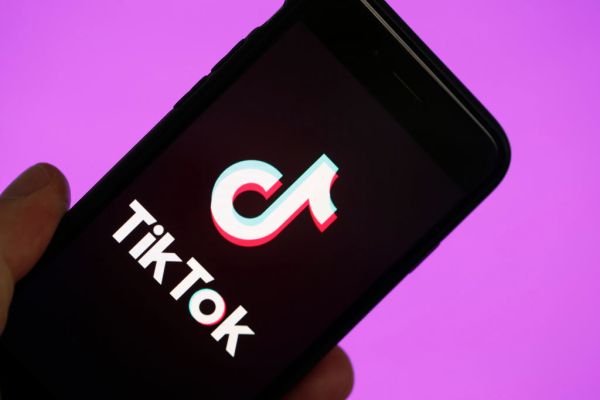Pirated software still flooding Kenyan market


Eight out of every ten (80 per cent) computers in Kenya operate on pirated software, according to Microsoft. Surveys by the Business Software Alliance, an international body that monitors software piracy across the world, have shown that majority of companies in Kenya buy only one genuine software programme but use pirated copies in their computer systems.
Microsoft has been in the forefront of anti – piracy campaigns for a while, below is an online interview #TechTrendsKe carried out with Microsoft personnel in regards to software piracy.
What comprises software piracy?
- Software piracy is the unauthorized copying or distribution of copyrighted software. This can be done by copying, downloading, sharing, selling, or installing multiple copies onto personal or work computers. What a lot of people don’t realize is that when you purchase software, you are actually purchasing a license to use it, not the actual software. It is that license that tells you how many times you can install the software, so it’s important to read it. If you make more copies of the software than the license permits, you are pirating.
What are the major piracy drivers in Africa?
- Legislation: Unclear and inconsistent legal framework has in the past posed challenges
- Enforcement: Lack of adequate & dedicated resources, and weak punitive measures
- Education: Lack of broad public education and awareness, which is critical to reduce software piracy
- Collaboration: Lack of cooperation between public & private stakeholders, and across the border with other IP officials
- Government, who are the largest users of software, tend to have higher software piracy than consumers due to the variety of procurement sources used
- Culture: Widespread social acceptance of software piracy & counterfeit products
- Complex & organized syndicate of pirates
- Sophisticated counterfeit products which make it difficult to differentiate between genuine & non-genuine software
Does software piracy experience any ethical dilemmas?
The decision to pirate or not may be related to an individual’s attitudes towards ethics. The apparent acceptance of software piracy in some markets should be a serious concern. Whether it is artists, inventors, musicians, or computer scientists – behind every innovative idea stands an imaginative, inspired person willing to do what it takes to see it through every stage. We have a moral & legal obligation to remunerate creators of IP work to encourage them to continue developing new innovations that add colour & value to our personal lives & businesses.
What are the effects of piracy to the local software market ?
- Software piracy hurts everyone—from software developers to ICT firms, government and ultimately all software users 2011 IDC study shows that Kenya had piracy rate of 78%, which represents US $ 85 M commercial value of pirated software
Fighting software has direct tangible benefits to citizens, businesses & governments – growth in employment, ICT industry & ultimately the economy
In Kenya, for example, the IDC study suggests that 10-percentage-point reduction in piracy rate over 4 years would create almost 1,000 jobs, contribute $ 74 million to GDP, and generate $ 40 million in revenue for local IT industry and an additional $ 7 million in tax revenue for the government.
Kindly share some of the policies and measures undertaken to slow down the level of software piracy in Africa?
- Enact laws that establish state corporation, such as The Kenya Copyright Board, to administer and enforce copyright and related rights
- Enact laws, such as the Kenya Copyright Act No.12 of 2001, to enhance criminal sanctions (fines and jail terms)
- The Copyright Act has set out a maximum penalty of approximately $ 10,000, with a maximum custodial sentence of 10 years for copyright offenders
- Provide adequate funding, dedicated stuff & facilities for the IP body to execute its mandate
- Train law enforcement agencies on how to investigate & prosecute software piracy cases
- Drive broad awareness & education to different audiences through mediums such as workshops, print & digital press
- Take enforcement action against software pirates who should be treated as seriously as other criminal offenders
- Customers who buy brand name products expect to have a specific product experience. Untrustworthy resellers are jeopardizing that customer experience
What legal steps have been taken to curb software piracy and what is Microsoft doing to help fight this?
- Work to help improve the legal environment that will then allow for effective enforcement
- Train law enforcement agencies on how to investigate and prosecute software piracy cases
- Create awareness & drive education to different audiences through mediums such as workshops, print & digital press
What can governments and it sectors do to reduce the rates of software piracy?
- Legislate: Establish a clear and consistent legal framework, taking into account the broader international context
- Enforce: Apply legislation with dedicated resources; software pirates should be treated as seriously as other criminal offenders
- Educate: Increase public education and awareness, this is critical to reduce software piracy
- Collaborate: Cooperate at domestic & international levels, given that software piracy is a global phenomenon
- Lead: Show the way by direct example. Public sector needs an effective plan for procuring and managing software assets
What impact does software piracy have on innovation?
- Creators of IP work are discouraged, and some stop or are unable to develop new innovations that add colour & value to our personal lives & businesses, as indicated above



